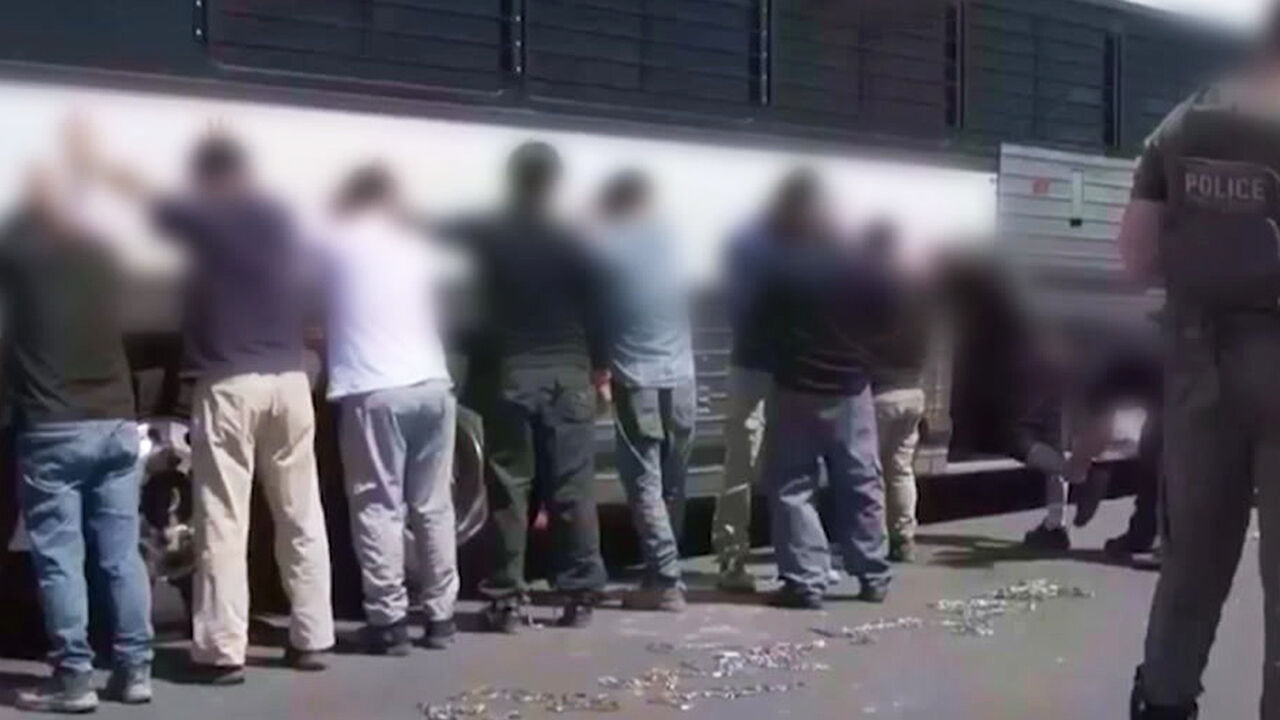What Happened
In early September 2025, U.S. immigration authorities carried out a large-scale raid at the Hyundai–LG battery plant construction site in Ellabell, Georgia. A total of 475 people were detained, and more than 300 of them were Korean nationals. The main issue was visa overstays and unauthorized employment.
What shocked Koreans most was the imagery. Workers were taken away with chains on their hands, ankles, and waists. For many, it wasn’t just a legal issue—it felt like a humiliation, as if citizens of a close ally were being paraded in degrading conditions.

How South Korea Reacted
1. Political Criticism
Politicians across the spectrum condemned the U.S. response, even calling it a betrayal of alliance trust. The Korean Ministry of Foreign Affairs also protested, insisting that its citizens’ rights and dignity must be respected.
2. Public Outrage and Media Reactions
Korean media highlighted that this went beyond ordinary law enforcement. Seeing Koreans in chains revived painful memories and a sense of national humiliation. At the same time, many criticized the Korean government for not being more proactive.
3. Anxiety in Immigrant Communities
Korean immigrants in the U.S. are now deeply unsettled. The raid didn’t only affect undocumented workers; people with unclear or technical visa issues were also swept up. This has created fear that even legal status might not be enough for protection.
4. Concerns About Korean Companies
Criticism has also been directed at Korean corporations. With billions invested in U.S. facilities, people are asking why firms didn’t ensure proper visa management and worker protection. This is no longer just about immigration—it’s a corporate risk management issue as well.
What Needs to Be Done
1. Stronger Diplomatic Measures
The Korean government has already requested the protection of detainees’ rights, but more structured agreements are needed. Both countries must clarify visa rules, work permits, and labor deployment processes.
2. Better Corporate Oversight
Korean firms will need to manage their overseas workers more thoroughly, including visa types, stay duration, labor conditions, and worker safety. Simply sending workers abroad is not enough anymore.
3. Support for Immigrant Communities
This incident highlighted the need for stronger safety nets—legal assistance, emergency hotlines, and better information systems for immigrant communities. The Korean government should also strengthen protections for its nationals overseas.
4. Ongoing Public Attention
This should not fade as a one-time news story. The broader context of tightening U.S. immigration enforcement means Koreans must stay alert. Public interest and media coverage will be key to preventing similar incidents in the future.